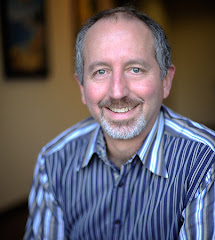- What is the effect on a community when an individual assumes they are more valuable than they are?
- What is the effect on that individual?
- What is the community's duty to that individual?
These are the questions I'm wondering about now (about 10 hours before this will be posted). Consider this parable:
From the Translator's Introduction of The Art of War by Sun Tzu (Thomas Cleary)
According to an old story, a lord of ancient China once asked his physician, a member of a family of healers, which of them was the most skilled in the art. The physician, whose reputation was such that his name became synonymous with medical science in China, replied, "My eldest brother sees the spirit of sickness and removes it before it takes shape, so his name does not get out of the house. My elder brother cures sickness when it is still extremely minute, so his name does not get out of the neighborhood. As for me, I puncture veins, prescribe potions and massage skin, so from time to time my name gets out and is heard among the lords."
This is not (necessarily) a doctor story!
A member of one of my communities (a course in self-expression and leadership that I take), decided to leave the group, citing excessive demands on her time by a myriad of philanthropic obligations.
I was surprised at the spectrum of my visceral responses. They ranged from, "...who cares?..." to guilt (for not being a possibility that would inspire her to stay) to offense (that she would consider her time more valuable than the rest of the group's).
Then, I remembered this story of the Chinese physician.
In the story, the honored physician recognizes that the less is needed, the better. The best use of knowledge and strategy makes conflict (a.k.a.: treatment, hard work, etc) unnecessary.
I am afraid that my colleague has denied herself the benefit of acquiring the technology to optimize her use of knowledge and strategy in her communities and we, one of her communities, are denied the vicarious experience of her learning to add to our personal experiences. I am that her completion of the course would have given her access to even greater effectiveness and more free-time, yet, apparently, she's not coming back.
As a member of the group, I share responsibility for not being a stand for her to fulfill her commitment and live into the possibility she created for herself and for us.
Just because I didn't achieve my intent of keeping the whole group intact, doesn't mean I will give up on the cause. I just need to get better. (the 10,000 hours Malcolm Gladwell talks about in Outliers).
You know that the greatest things don't need any one individual, they need an effective, cohesive community.
How should I have been to touch. move and inspire this person to stay with the group? Keep in mind, it's not about persuasion, it's not about attachment, it's about commitment...
Has it happened to you? What did you do? What will you do next time?
Do tell!!
MSS






0 comments:
Post a Comment
I'm glad you were touched, moved and inspired to leave a comment. Your participation in the community is a valuable asset, whether you agree with me or not!